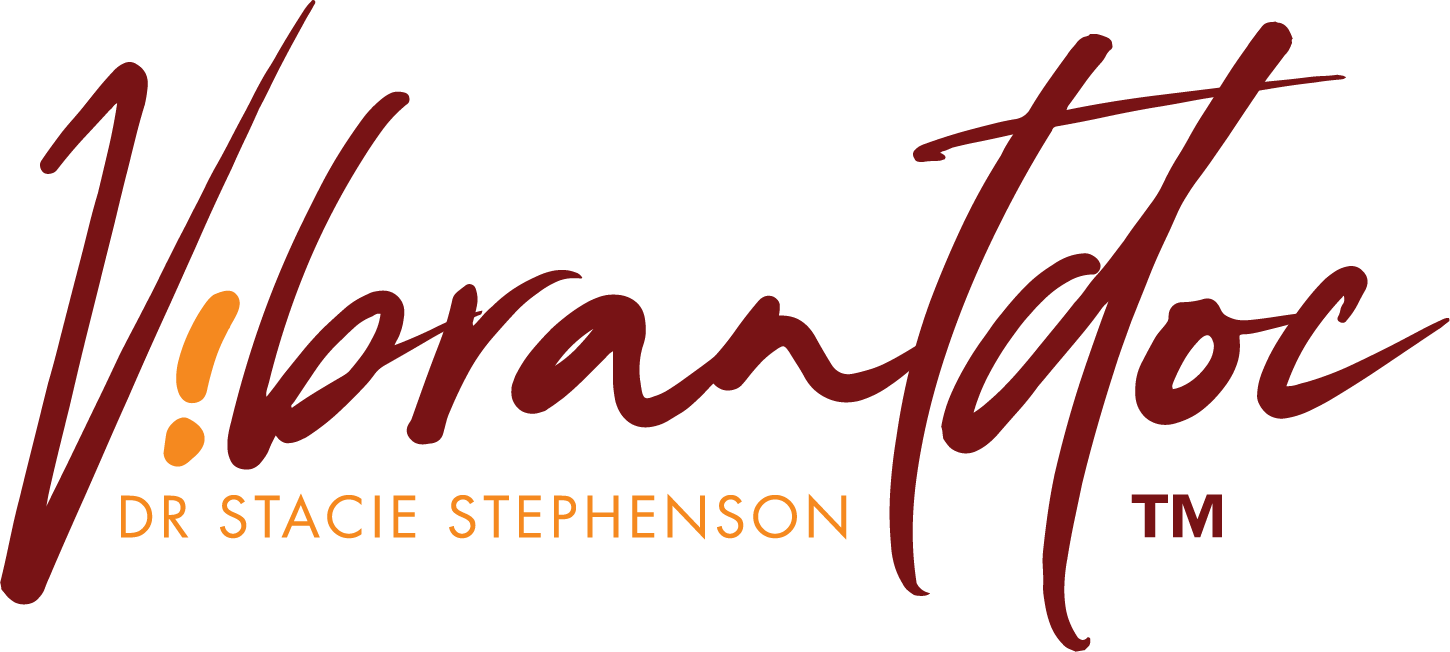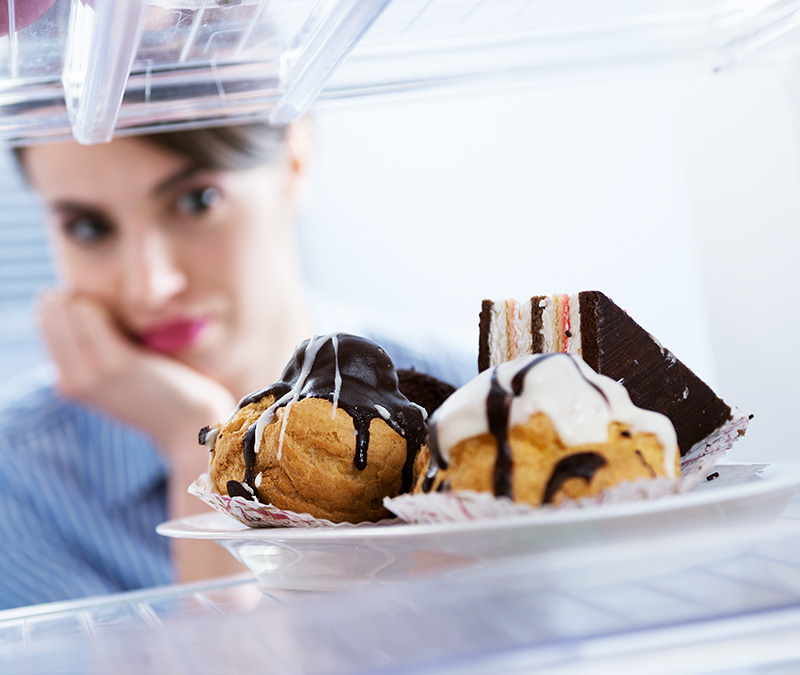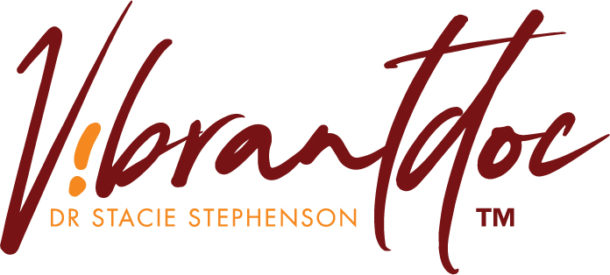It’s becoming an all-too-familiar scenario: You’re worried, you’re bored, you’re uncertain about the future, and all you want to do is eat. Cravings are one of those things most of us battle once in a while, and some people seem to be more prone to cravings than others, but why are so many people reporting irresistible cravings right now, in the middle of a quarantine?
There are several reasons why people have cravings, and many of them apply to many of us right now. Let’s take a look at what the research has to say about your recent compulsion to bake banana bread or polish off the rest of the Girl Scout cookies you’ve successfully resisted until now, and what you can do about it:
You are stressed. The connection has been repeatedly proven: When people are stressed, they tend to have more food cravings, especially for high-calorie foods rich in sugar, fat, and salt.
Extreme stress, which releases adrenaline, can make you not want to eat at all. That makes sense because adrenaline is an appetite suppressant. But low-grade chronic stress, which releases cortisol, an appetite stimulant, has the opposite effect.
Chronic stress is just what many people are experiencing right now, as we have all been quarantined for weeks now. They worry about the possibility of getting sick, having the financial resources to get by while they are indefinitely unable to go to work, and/or they are missing that human connection with family and friends. In the short term, high-fat “comfort foods” do give you the illusion of relieving stress, but uncontrolled intake can end up causing guilt and other bad feelings, making you feel even worse and causing a negative feedback loop that can be hard to escape.
SOLUTION: Don’t be so hard on yourself. If you are already stressed, then stress about stress eating just makes it all worse. That being said, there are plenty of things you can do instead of eating that are a lot better at actually relieving stress.
My favorite: cardio. It may seem less appealing in the moment than gorging on comfort food, but in just 30 minutes, you could feel a whole lot better rather than a whole lot worse. Go for a fast walk or a jog—added feel-good benefits if you do it while listening to music. Cardiovascular exercise is a potent stress reliever and it can make you feel so good that you don’t need that snack fix anymore. Also, since cravings usually only last for five or ten minutes, by the time you get back from your walk, you will probably be over it. Even if you aren’t, you may have better willpower. An Australian study showed that people who started exercising regularly became much better at resisting temptations and completing difficult tasks.
Your diet is too restrictive or too monotonous. Several studies have shown that purposeful food restriction (aka dieting) increases cravings. If you’ve been using this enforced time off to try to drop a few pounds, this seemingly sensible strategy could be backfiring. Lack of variety could also be to blame. There was a study that gave people shakes containing all the nutrition they required, but no other food. These people reported significantly more cravings than when they were eating normally. If you haven’t been getting to the store as often and are eating the same thing every day, that could be another reason why you can’t stop thinking about that one brand of chips or chocolate that you can’t go out and buy right now.
SOLUTION: Purposefully vary your diet more. Add more fruits and vegetables, try some new recipes, put something new on your oatmeal or in your sandwich. See what’s in your freezer that you haven’t had for a while, or change up the items in your grocery delivery. This can keep your palate and your brain more stimulated, so you won’t find yourself inadvertently seeking novelty from foods that could be working against your health goals.
You are susceptible to triggers. All those #stressbaking photos on Instagram could be responsible for your cravings. Research has linked food cravings to visual representations of food. You see it and then you want it. One study showed that people who have frequent food cravings tend to have a strong visual component to their cravings. They see the food they want in their minds. When they were exposed to distracting visual images that had nothing to do with food, the strength of their cravings was reduced. The smell of food can also trigger a craving, or a memory associated with a food that triggers a craving.
SOLUTION: Stop purposefully exposing yourself to visual representations of junk food. Take an Instagram break, leave the room when TV commercials come on, and get junk food out of your house or at least out of sight. If you see your favorite chips or candy every time you open your cabinet, you’ll be much more likely to indulge. If it’s stashed in the back or in the freezer out of sight, then it may stay out of your mind. To reinforce this, focus on non-food visual images you enjoy. You can also expose yourself to non-food smells to kill a craving. Try breathing in the scent of an essential oil like eucalyptus, or smelling perfume or flowers.
You’re in the habit. Scientists who study habits have learned that when we do something pleasurable, we quickly learn to associate it with environmental cues. It’s like Pavlov’s dog—in that famous experiment, Russian physiologist Ivan Pavlov taught dogs to associate food with the ring of a bell. Before long, the sound of the bell alone would cause the dog to salivate, even without the food. People are just as susceptible to this sort of conditioning. If you are hungry and eat butter-drenched popcorn while watching your favorite show, and you really enjoy it, then pretty soon, your favorite show will automatically make you want to eat popcorn, even if you aren’t hungry. The good news is that you can flip that simplistic mental tendency and use it for your benefit.
SOLUTION: Swap your bad habit for a good one and reinforce it a few times, and pretty soon the same cue—your favorite show—can make you feel like doing something healthier—eating a bowl of strawberries or having a cup of mint tea or doing your nightly sit-ups. It won’t be easy at first, but habits become weaker every time you resist them, and stronger every time you indulge them, so remember that the next time you are tempted to give in to something you know you will regret tomorrow.
You’re bored. Some people are honestly just really bored right now, and that can have your brain casting about for something to do. Eating is easy and pleasurable, so it is often the first thing we think about doing when we’re looking for mental stimulation.
SOLUTION: Be more creative. Think about how uninspired it is to address boredom with food when you could be doing something much more stimulating and worthwhile. It’s just as easy to listen to music or pick up a book as pick up a snack, or try something more experiential like organizing a video chat with your friends, doing a quick online workout (like the famous “seven minute workout”—there are multiple versions online), taking a yoga break, or just stepping outside and getting some fresh air. If you distract yourself with something truly engaging, that craving should lose its power.
You have a conscious (or unconscious) fear of scarcity. Your body may be attempting to hoard calories because you secretly fear you’ll run out of food (or hand sanitizer or toilet paper or whatever else you’ve heard is scarce right now). This can cause the compulsion to eat high-calorie foods, not only to alleviate the stress but to fulfill that ancient instinct to eat while the eating’s good in case famine is imminent.
SOLUTION: Remind yourself that famine is not imminent. Food is available everywhere. Take a few deep breaths and let your higher brain functions pull rank on your primitive brain. You are in charge and you get to decide what you do and do not eat.
Cravings aren’t easy to conquer, especially during times of high anxiety, but the more you know about why you feel compelled to eat something with too much sugar, fat, or salt, the easier it can be to resist. It’s fine to indulge once in a while, of course. What matters is that you eat what you want to eat—what makes you feel good and strong and in control of your own choices, rather than what makes you feel angry or regretful or out of control.
You should never have to feel that you are at the mercy of an impulse that isn’t what you want for yourself and your life. So give yourself permission to dissect that craving. Examine it and unmask it and see it for what it really is. We all have worries right now, some more than others, but I can tell you one thing for sure: Overeating chocolate or potato chips or pizza is not going to fix anything, and I hope I’ve helped you see that you can discover much better ways to cope.
SOURCES:
https://www.ncbi.nlm.nih.gov/pmc/articles/PMC6186388/
https://www.ncbi.nlm.nih.gov/pmc/articles/PMC4214609/
https://www.sciencedirect.com/science/article/abs/pii/S0195666301903903
https://eurekalert.org/pub_releases/2019-04/eaft-sle042919.php
https://www.sciencedaily.com/releases/2003/09/030911072109.htm
https://now.tufts.edu/articles/craving-brain
https://www.health.harvard.edu/staying-healthy/why-stress-causes-people-to-overeat
https://www.ncbi.nlm.nih.gov/pubmed/17032494
https://www.scientificamerican.com/article/why-do-we-crave-sweets-when-were-stressed/
https://www.psychologicalscience.org/news/releases/the-psychology-of-food-cravings.html
https://www.medicalnewstoday.com/articles/318441#causes


